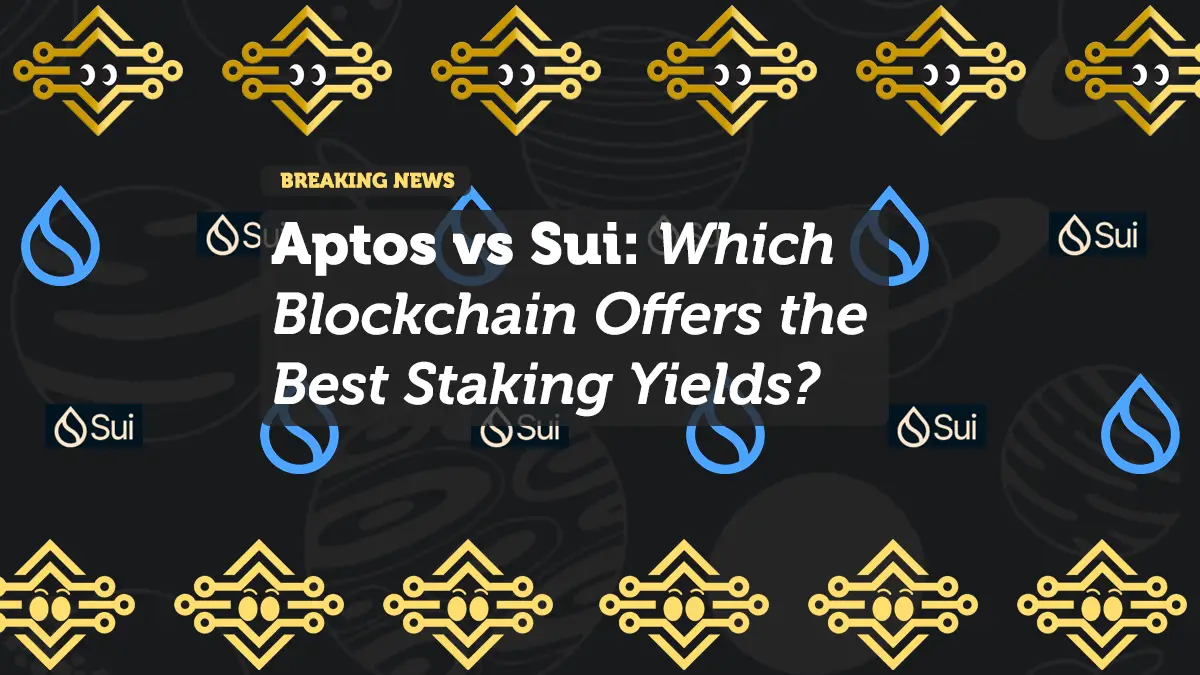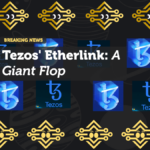
Aptos vs Sui: Which Blockchain Offers the Best Staking Yields?
In the ever-evolving landscape of Layer-1 blockchains, Aptos and Sui are emerging as key players, both leveraging the powerful Move programming language to deliver robust, scalable solutions. While both networks are promising, the question for many investors and stakers is: which blockchain offers the best staking yields?
In this head-to-head comparison, we’ll explore the staking ecosystems of Aptos and Sui, focusing on reward structures, yield sustainability, validator participation, and security. Whether you’re a seasoned staker or new to the world of blockchain, understanding these dynamics can help you make informed decisions about where to allocate your assets.
Head-to-Head Comparison: Aptos and Sui Staking
Both Aptos and Sui aim to provide a strong staking experience, but their approaches differ significantly due to their stages of development and community support.
1. Reward Structures
- Aptos Staking Yields: Since its launch, Aptos has built a stable staking community, offering consistent yields between 5% and 12% annually, depending on network activity and validator performance. The network’s mature ecosystem and balanced tokenomics contribute to these stable yields.
- Sui Staking Yields: Sui, still in its early stages, is attracting attention with higher initial staking rewards, often reaching 10% to 20% APY. These lucrative incentives are designed to draw in new validators and delegators. However, questions remain about the long-term sustainability of these high yields.
2. Validator Economics
- Aptos Validator Participation: Aptos has a well-established validator set with stringent performance requirements, ensuring network stability and consistent rewards for stakers. Validator rewards are based on uptime and transaction processing efficiency, with a diverse pool helping to decentralize the network.
- Sui Validator Economics: Sui is rapidly expanding its validator set but faces challenges in maintaining economic incentives over time. While the high initial yields are attractive, they could lead to a drop in rewards as more validators join the network and dilute the total reward pool.
Yield Sustainability and Validator Participation
The sustainability of staking yields is crucial for long-term investors. Here’s how Aptos and Sui compare in maintaining stable and attractive rewards:
1. Aptos’ Yield Sustainability
- Mature Ecosystem: Aptos benefits from a mature staking ecosystem where rewards are balanced by network demand and validator participation. This mature setup helps maintain yield stability, making it a reliable option for long-term stakers.
- Balanced Tokenomics: Aptos has implemented balanced tokenomics to control inflation and reward distribution, ensuring that staking yields do not erode over time. The network’s gradual growth strategy supports sustainable returns.
2. Sui’s Yield Challenges
- High Initial Yields: Sui’s high initial staking rewards are drawing in validators, but these may not be sustainable as the network grows. High yields often act as temporary incentives to boost participation, but can lead to rapid dilution of rewards once the validator pool reaches a critical size.
- Incentive Model Risks: The current incentive model on Sui may attract “yield chasers” who leave once rewards decrease, potentially destabilizing the network’s security and validator participation.
For investors seeking stable, long-term yields, Aptos currently presents a more balanced and sustainable option. Sui, while offering attractive short-term gains, may need to adjust its economic model to maintain yield attractiveness as the network matures.
Security and Network Decentralization
Security is a fundamental consideration for any staking platform. Here’s how Aptos and Sui compare in terms of network security and decentralization:
1. Aptos Security and Decentralization
- Established Validator Base: Aptos has a broad and well-established validator base, contributing to the network’s overall security. The stringent requirements for becoming a validator help ensure that only reliable nodes participate, reducing the risk of malicious activity.
- Network Stability: Aptos’ gradual growth and stable reward structure have fostered a secure and decentralized network, with lower risks of centralization and validator dominance.
2. Sui’s Security Concerns
- Rapid Expansion: While Sui’s validator set is expanding rapidly, the network’s decentralization is still a work in progress. The current distribution of validators is skewed, with a few large players controlling a significant portion of the staking power, raising concerns about centralization.
- Future Decentralization: As Sui scales, it will need to ensure that its validator set remains decentralized and secure. This involves encouraging more independent validators to join the network and distributing rewards in a way that prevents centralization.
For stakers concerned with security and decentralization, Aptos currently offers a more established and secure environment. Sui, while improving, still has work to do to match Aptos’ level of network resilience and decentralization.
Long-Term Staking Outlook for Aptos and Sui
Looking ahead, both Aptos and Sui have ambitious roadmaps that will influence their staking economies. Here’s what to expect from each network:
1. Aptos’ Future Staking Prospects
- Stable Growth Trajectory: Aptos is focusing on gradual, sustainable growth. This includes continuous upgrades to its consensus mechanism and expanding its DeFi ecosystem, which could create more demand for staking and liquidity.
- Upcoming DeFi Integrations: Aptos is exploring new DeFi opportunities, such as lending and liquidity pools, that could enhance staking yields by creating additional use cases for staked tokens. This could attract more users and validators, further stabilizing the network.
2. Sui’s Roadmap and Challenges
- Aggressive Growth Strategy: Sui’s aggressive growth strategy, while attracting attention, may pose risks if not managed carefully. The focus on short-term incentives could lead to volatility in staking yields and validator participation.
- Potential for DeFi and GameFi Expansion: Sui’s integration of DeFi and GameFi projects could create new opportunities for staking and yield farming. However, the network will need to ensure that these integrations do not compromise security or lead to liquidity fragmentation.
3. Long-Term Yield Comparison
- Aptos for Stability: For those looking for stable, long-term returns, Aptos appears to be the safer bet, with a focus on sustainable growth and yield stability.
- Sui for Short-Term Gains: Sui may be more appealing to those seeking high short-term rewards, but it comes with increased risks and the need for careful monitoring of network developments.
Both blockchains have the potential to evolve and improve their staking ecosystems, but for now, Aptos offers a more predictable and secure environment for long-term stakers.
Conclusion: Aptos or Sui – Which Should You Choose?
Choosing between Aptos and Sui for staking ultimately depends on your investment goals and risk tolerance:
- Aptos: Offers stable and predictable yields with a mature validator ecosystem and secure network. It is ideal for those looking for long-term, reliable returns.
- Sui: Provides higher initial yields with aggressive growth strategies but comes with higher risks. It is better suited for those seeking short-term gains and willing to adapt to a changing staking landscape.
As both networks continue to evolve, staying informed about their developments and adjusting your strategy accordingly will be key to maximizing your staking rewards. Whether you prefer the stability of Aptos or the high-reward potential of Sui, both platforms offer unique opportunities in the expanding world of blockchain staking.











